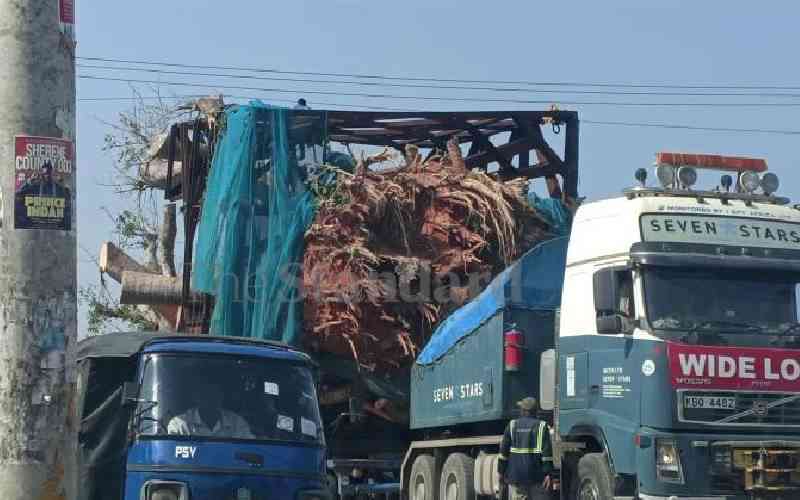×
The Standard e-Paper
Home To Bold Columnists

A ship carrying gigantic live baobab trees has sailed from the Kenyan Coast to Georgia, ending a nine-month standoff between a Kilifi-based billionaire and State agencies that had suspended the export permit.
But as the ship with ten baobab trees sailed away, it left behind questions on the findings of the probe by several State security agencies and parliamentary watchdogs on how Mr George Gvasaliya got the permit.